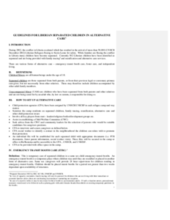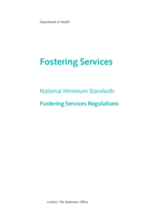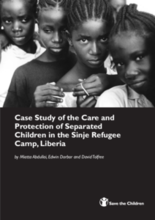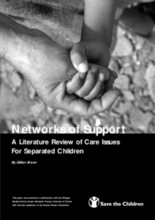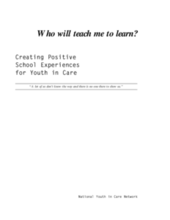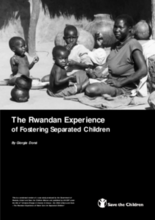Displaying 2181 - 2190 of 2221
Guidelines and criteria for establishing and monitoring alternative care arrangements including emergency transit booth care (ETBC), foster care, and independent living for separated Liberian refugee children in Sierra Leone.
A set of standards for the delivery of a national fostering service. It includes standards for the management of the service, the delivery of care, reunification with birth families, and working with caregivers.
This paper outlines the response of Save the Children to the civil war outbreak in Liberia. Using the concept of child participation, the organization was able to address the needs of the children, which included family tracing and reunification, child protection and education.
The central theme of this volume is accountability for outcomes, certainly a current driving force in child welfare as well as in other public and private service fields.
This article, a chapter from the book Family Foster Care in the Next Century, describes several innovative types of shared family care arrangements that demonstrate promise in the protection of children and the promotion of family well-being.
This article, a chapter in the book Family Foster Care in the Next Century, describes how child well-being has been conceptualized and measured in research on family foster care, and discusses the essential dimensions that should be included in a useful measure of child well-being.
This report reviews existing the literature on separated children and examines childhood, family, childcare practices and separation. It highlights the importance of context and child participation in designing programs and policies to assist separated children.
Research project examining the problems faced in the education of youth in care in Canada. Provides recommendations for supporting high school education and for including children in their educational planning.
The purpose of this report is to document the levels of child abandonment and de-institutionalization as an indicator of the quality of social transformation during the transition decade (1990-2000).
A report about a case-study in Rwanda documenting the practice of, and policies regarding, fostering (formal and informal). The study also explored the views of children in foster care, caretakers, agencies and local authorities regarding fostering.

